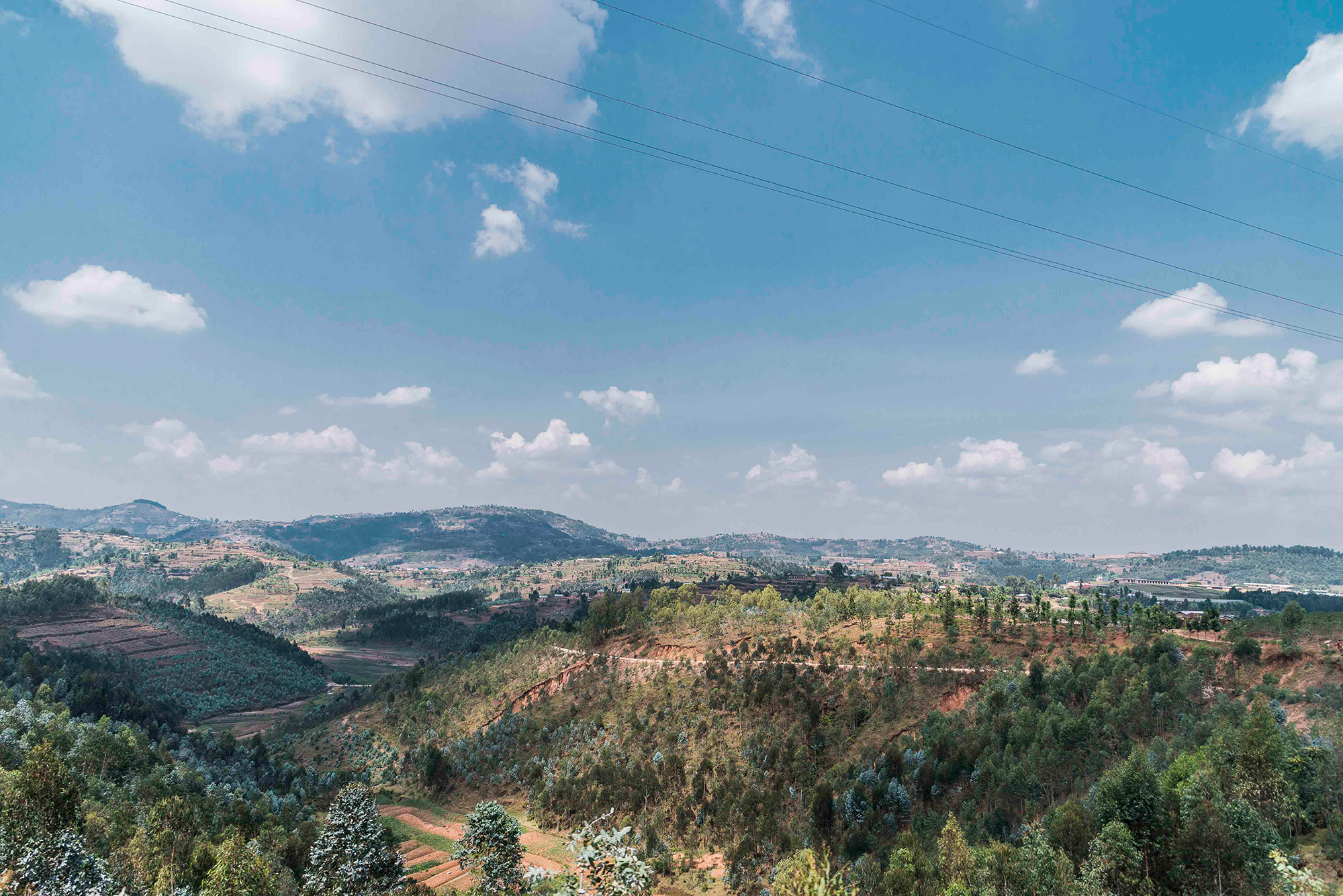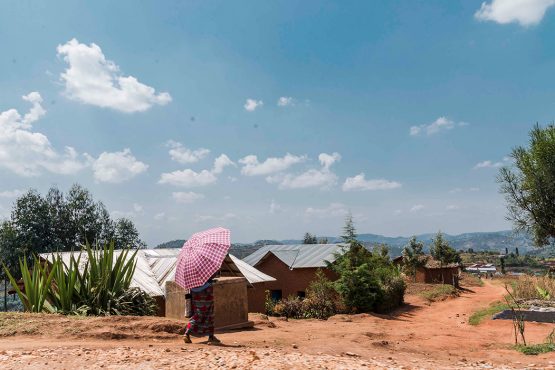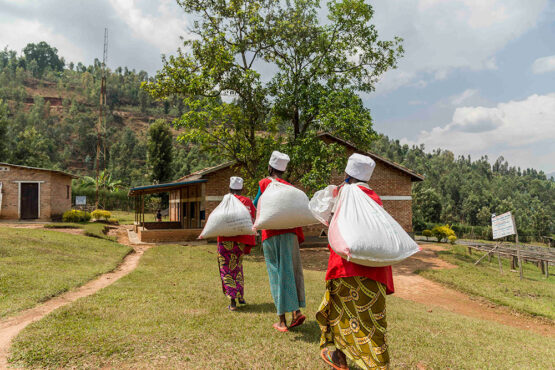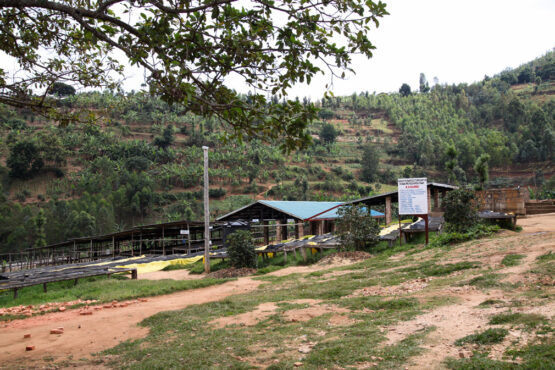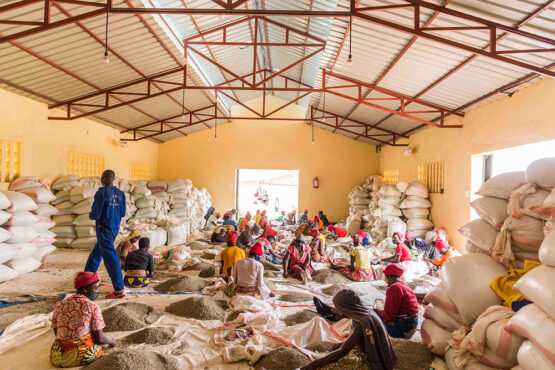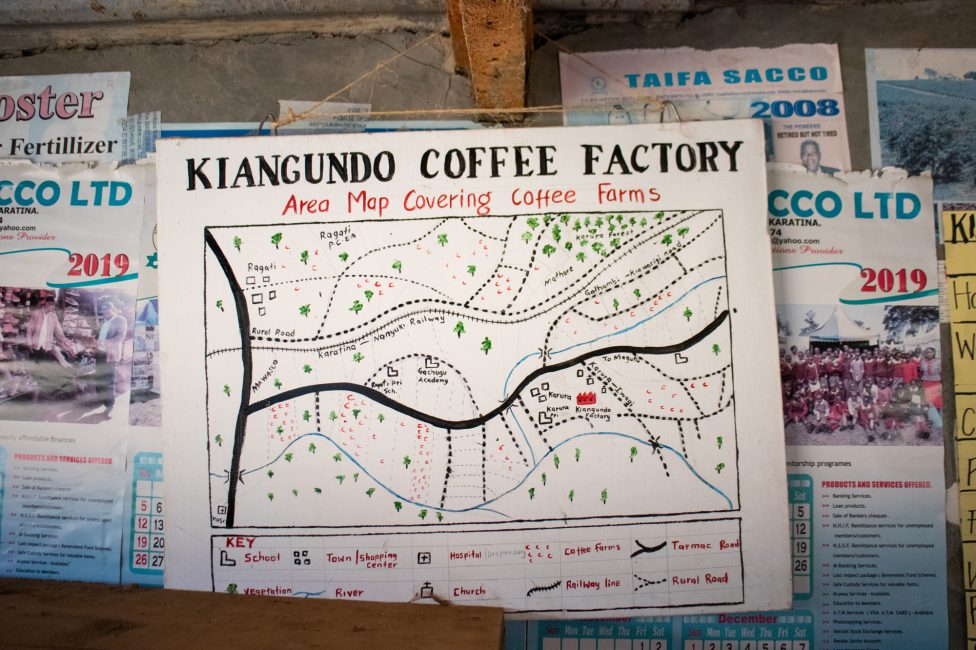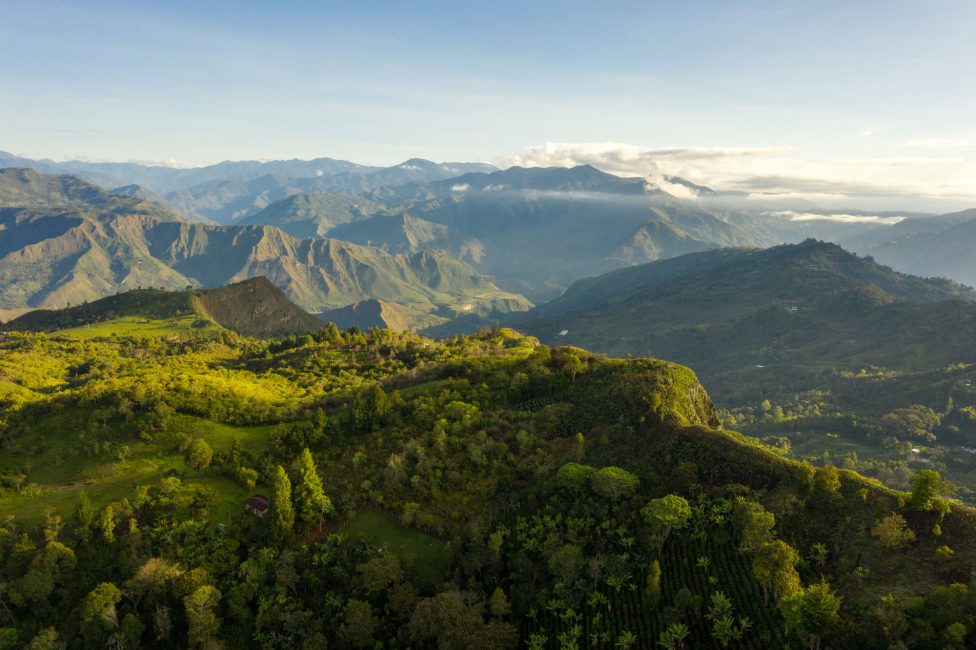Daphrose Mukanyarwaga
Orange, yellow peach and maple syrup, with a creamy body and black tea on the finish. Great structure and balance.
It is very rare to be able to get a coffee that is traceable back to a single farm in Rwanda, so we feel extremely fortunate to be able to share this special lot from producer Daphrose Mukanyarwaga.
Most of the coffees we source from Rwanda are traceable back to a washing station, or sometimes a farmer group. Most washing stations in Rwanda receive cherry from hundreds (and sometimes thousands) of farmers who own very small plots of land – on average less than a quarter hectare, with just 300-600 coffee trees. Separation of such tiny lots is expensive and impractical, so the large majority of coffees are processed as a mixed lot from multiple producers. Typically, lots are separated as day lots (ie. cherries that were all picked on the same day) rather than by a single farm or producer group.
Single producer micro-lots like this one are extremely rare. In this case, it is made possible because it is made up of coffee grown across Daphrose’s three small plantations, which total around 1 hectare of cultivable land. Daphrose is also a member of the Koakaka Cooperative, which has its own dry mill, allowing them to process smaller lots individually, whilst minimising cost and maintaining excellent quality standards.
Daphrose is 62 years old and her story mirrors that of many other Rwandan women coffee growers. She was widowed and lost three of her four children during the horrific Rwandan Genocide in 1994. Coffee played an important role in her journey to rebuild her life, eventually joining Koakaka Cooperative in 2004. She has been a strong supporter of the cooperative and its women-focused coffee initiatives ever since.
ABOUT KARAMBI WASHING STATION
This coffee was processed at Karambi washing station, which was established in 2003. It is a relatively small washing station for Rwanda, servicing about 441 local cooperative members who farm locally. The washing station sits in the high, rugged mountains of Rwanda’s Southern Province. Quality control operations are overseen by Viateur Ntabanganyimana, while the day to day is overseen by Safari Bonaventure, who is also Koakaka’s general manager. Viatuer is one of seven full-time staff members employed by the washing station. During the season this number grows to about 186 staff members, most of whom are women employed to sort coffee during the drying stages.
The area around Karambi washing station has ideal growing conditions for high-quality coffee, with high elevations, good rainfall and steady, cool temperatures year-round. The farms that deliver to Karambi are situated between 1,685 and 1,870 meters above sea level and are typically very small – averaging just a quarter of a hectare, or between 300-600 coffee trees.
Head here to learn more about the work of Koakaka in Rwanda.
PROCESSING AT KARAMBI WASHING STATION
This coffee was processed using the washed processing method at the Karambi Washing Station, using clean, natural spring water from the surrounding mountains. The team at Karambi are meticulous in their approach to processing, to ensure the highest coffee quality possible is achieved.
- Daphrose employs four workers during the harvest to help her with picking. The pickers are trained to select only the ripest cherries for harvest and do several passes throughout the season to ensure quality standards are met. Cherries are then delivered to the Karambi Washing Station.
- On delivery, the cherries are inspected and sorted to ensure only the very ripest cherries are processed. They are then sorted by weight (and any floaters removed) and pulped on the same day—almost always in the evening—using a mechanical pulper that divides the beans into three grades. After pulping the coffee is fermented overnight in tiled tanks (for 12 -18 hours) without water and then graded again using floatation channels that sort the coffee by weight (heaviest usually being the best).
- The beans are then soaked in clean water for a further 14 hours, before being moved to raised screens for ‘wet-sorting’ by hand—this is a task almost always carried out by women.
- The sorted beans are finally dried in the sun on raised screens (‘African beds’) for two weeks. During this period, the coffee is turned several times a day by hand to ensure the coffee dries evenly and consistently. It is also sorted constantly, with any defects removed.
- Once dry, the coffee beans are stored in parchment, in carefully labelled day lots, until they are ready for milling and export. The coffee is then sent to the Nyamagabe District (where Koakaka recently built a dry mill) and prepared for export.
A busy day of sorting and milling at the Koakaka Coffee Dry Mill
WHY WE LOVE IT
Coffees from Huye District are characterised by heavy sweetness and juicy character. We’re excited to purchase coffee from Daphrose for the first time, and feel incredibly lucky to represent her here in Australia. We love this coffee for its distinct creamy body and clean finish, with nectarine and milk chocolate in the cup.
